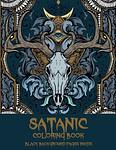The Greatest French, German, Austrian "Postmodern, Fiction" Books Since 1950
Click to learn how this list is calculated.
This list represents a comprehensive and trusted collection of the greatest books. Developed through a specialized algorithm, it brings together 305 'best of' book lists to form a definitive guide to the world's most acclaimed books. For those interested in how these books are chosen, additional details can be found on the rankings page.
Genres
Postmodernism is a literary movement that emerged in the mid-20th century, characterized by a rejection of traditional narrative structures and a focus on self-reflexivity and intertextuality. Postmodern literature often features fragmented narratives, unreliable narrators, and a blurring of the lines between reality and fiction. It is a genre that challenges the notion of a single, objective truth and instead embraces the idea of multiple perspectives and interpretations. Postmodern literature is often seen as a response to the modernist movement that preceded it, and it continues to be a popular and influential category for contemporary writers.
Countries
Date Range
Reading Statistics
Click the button below to see how many of these books you've read!
Download
If you're interested in downloading this list as a CSV file for use in a spreadsheet application, you can easily do so by clicking the button below. Please note that to ensure a manageable file size and faster download, the CSV will include details for only the first 500 books.
Download-
1. The Tin Drum by Günter Grass
The novel tells the story of Oskar Matzerath, a boy who decides on his third birthday that he will stop growing and remain a three-year-old forever. Oskar is gifted with a tin drum by his mother, which he uses to express his emotions and thoughts. Living in Danzig during the rise of Nazi Germany, Oskar's refusal to grow is a form of protest against the adult world. The book is a blend of magical realism and historical fiction, providing a unique perspective on the horrors of World War II and the post-war era in Germany.
The 94th Greatest Book of All Time -
2. Life, a User's Manual by Georges Perec
The novel explores the lives of the inhabitants of a Parisian apartment block through a complex, multi-layered narrative. It delves into the interconnected stories of the building's residents, revealing their secrets, desires, and disappointments. The narrative is structured like a puzzle, with the author employing a variety of literary styles and devices, making it a complex and intriguing exploration of human life.
The 451st Greatest Book of All Time -
3. Austerlitz by W. G. Sebald
The novel follows the story of Jacques Austerlitz, an architectural historian who was brought to England on a Kindertransport from Czechoslovakia during World War II. As an adult, Jacques embarks on a journey to uncover his past, including his original identity, his parent's fate, and his own lost history. The narrative is a haunting exploration of memory, identity, and the lasting impact of the Holocaust.
The 467th Greatest Book of All Time -
4. Correction by Thomas Bernhard
"Correction" is a complex narrative revolving around the life of a man named Roithamer, a genius obsessed with constructing an architectural masterpiece, the Cone, in the center of the Kobernausser forest. The story is told through the perspective of his friend who is reading Roithamer's notes after his suicide. The novel explores themes of obsession, isolation, and the pursuit of perfection, while also delving into the protagonist's troubled relationships with his family and society.
The 1032nd Greatest Book of All Time -
5. The Flanders Road by Claude Simon
The novel delves into the complexities of memory and the chaos of war, weaving together the narratives of several characters whose lives are entangled by the events of World War II. Set against the backdrop of the German invasion of France, the story unfolds through a series of flashbacks and stream-of-consciousness reflections, primarily focusing on a French cavalry officer captured by the Germans. As the characters grapple with their experiences and relationships, the book explores themes of loss, betrayal, and the elusive nature of truth, all while challenging traditional narrative structures with its fragmented and non-linear approach to storytelling.
The 1453rd Greatest Book of All Time -
6. Concrete by Thomas Bernhard
The book is a darkly introspective narrative that delves into the mind of a reclusive, obsessive intellectual who is struggling to complete his scholarly work on the composer Mendelssohn. As he grapples with his own ailments and the perceived mediocrity of his surroundings, the protagonist's stream-of-consciousness monologue reveals his deep-seated anxieties, self-loathing, and profound isolation. The narrative is a relentless examination of the protagonist's psyche, showcasing his critical view of society and his own personal relationships, which are fraught with tension and dysfunction. Through this, the novel explores themes of artistic creation, intellectual elitism, and the suffocating nature of expectations and familial obligations.
The 1747th Greatest Book of All Time -
7. Woodcutters by Thomas Bernhard
Woodcutters is a darkly humorous critique of Vienna's artistic elite. The story takes place over the course of a single evening, as the narrator attends a dinner party in honor of a recently successful actor. As the evening progresses, he reflects on the pretentiousness and hypocrisy of the guests, the mediocrity of their artistic achievements, and the tragic suicide of his former lover. The novel is a scathing indictment of the vanity and self-delusion of the artistic community.
The 1754th Greatest Book of All Time -
8. W, or the Memory of Childhood by Georges Perec
"W, or the Memory of Childhood" is a unique blend of autobiographical recollections and fictional narrative. The novel alternates between two storylines: one describing the childhood of a Jewish boy during World War II, and the other detailing a dystopian society on a mysterious island known as "W". The book explores themes of memory, trauma, and the loss of innocence, while also offering a critique of totalitarian regimes. The two narratives gradually converge, revealing the traumatic underpinnings of the protagonist's life and the allegorical nature of "W".
The 1757th Greatest Book of All Time -
9. The Erasers by Alain Robbe-Grillet
The book is a complex and innovative narrative that blurs the lines between reality and imagination, following a detective who is investigating a series of connected murders in a nameless town. As the detective delves deeper into the case, the story unfolds in a non-linear fashion, challenging the reader's perception of time and causality. The novel's structure, characterized by repetitive descriptions and a lack of clear resolution, reflects the themes of uncertainty and the elusiveness of truth, ultimately questioning the nature of existence and the reliability of memory and perception.
The 1834th Greatest Book of All Time -
10. The Egghead Republic by Arno Schmidt
The book is a satirical science fiction novella that takes readers on a journey through a post-apocalyptic world. Set in a future where a catastrophic event has fragmented society, the story follows a journalist as he travels to an artificial island known as the Egghead Republic, a haven for intellectuals and scientists. This enclave is dedicated to preserving knowledge and culture amidst the chaos of the outside world. The narrative is characterized by its linguistic inventiveness and complex wordplay, as it explores themes of isolation, the role of intellectuals in society, and the nature of human civilization through the lens of a dystopian future.
The 1873rd Greatest Book of All Time -
11. Dog Years by Günter Grass
"Dog Years" is a novel set in Germany during the rise and fall of the Nazi regime and the aftermath of World War II. The story is told from the perspectives of three friends: Walter Matern, a fervent Nazi supporter; Eduard Amsel, a Jewish artist who creates scarecrows; and Harry Liebenau, who narrates their stories. The novel explores the complexities of friendship and identity amidst the backdrop of war, guilt, and redemption. It also delves into the psychological impact of the Holocaust on German society and the struggle to come to terms with its horrific past.
The 2454th Greatest Book of All Time -
12. Wittgenstein's Nephew by Thomas Bernhard
"Wittgenstein's Nephew" is a semi-autobiographical novel that explores the friendship between the narrator and his friend Paul, who is the nephew of the famous philosopher Ludwig Wittgenstein. The story takes place in Vienna and is set against the backdrop of the Austrian mental health system. The novel delves into themes of sanity, insanity, and the fine line that separates the two, while also offering a critique of Austrian society. It is a meditation on the nature of illness, both physical and mental, and the impact it has on personal relationships and one's perception of the world.
The 3010th Greatest Book of All Time -
13. The Last World by Christoph Ransmayr
"The Last World" is a novel that reimagines the exile of the Roman poet Ovid in a remote village at the edge of the Black Sea. The story is set in a mythical time and place, where the villagers are haunted by strange transformations and echoes of Ovid's metamorphoses. The novel blurs the lines between the real and the imaginary, the past and the present, and the world of the living and the dead, creating a surreal and dreamlike atmosphere.
The 3382nd Greatest Book of All Time -
14. Vertigo by W. G. Sebald
"Vertigo" is a complex narrative that combines elements of fiction, travelogue, biography, and autobiography. The novel is divided into four sections, each exploring the life and works of different historical figures such as Stendhal, Kafka, and Casanova, as well as the author's own experiences. The narrative is characterized by its exploration of themes such as memory, identity, and the past, often blurring the lines between fact and fiction. The book is also notable for its distinctive style, featuring long, meandering sentences and a lack of traditional plot structure.
The 3613th Greatest Book of All Time -
15. The Voyeur by Alain Robbe-Grillet
"The Voyeur" is a psychological thriller that revolves around the protagonist, a watch salesman, who visits an island town to sell watches but becomes the prime suspect in a young girl's murder. The narrative delves into the mind of the salesman, constantly blurring the lines between reality and his fantasies. The book is known for its experimental narrative style, with the author often repeating scenes with minor variations and leaving the reader to question the truth.
The 4147th Greatest Book of All Time -
16. La Vie Et Demie by Sony Labou Tansi
"La Vie Et Demie" is a thought-provoking novel set in an unnamed African country, where an oppressive regime has seized power and implemented a bizarre policy of dividing its citizens into "halves" and "wholes." The story follows the life of a young girl named Sophie, who is born as a "half" and faces discrimination and hardship due to her status. Through Sophie's experiences, the author explores themes of identity, inequality, and the dehumanizing effects of totalitarianism, offering a powerful critique of social and political systems.
The 4455th Greatest Book of All Time -
17. Childhood by Nathalie Sarraute
"Childhood" is a memoir that delves into the fragmented memories of the author's early years, exploring the complexities of growing up and the formation of identity. Through a series of vignettes, the narrative captures the nuanced emotions and experiences of a young girl navigating her way through the challenges of family dynamics, societal expectations, and self-discovery. The author employs an innovative literary style, characterized by introspection and a stream-of-consciousness approach, to reflect on the elusive nature of memory and the ways in which our childhood experiences shape who we become.
The 4517th Greatest Book of All Time -
18. Fantasia: An Algerian Cavalcade by Assia Djebar
"Fantasia: An Algerian Cavalcade" is a multifaceted novel that intertwines personal narratives with the history of Algeria's resistance against French colonialism. Through a blend of autobiography, historical documentation, and fictional reimaginings, the book explores the complex layers of identity, memory, and struggle from the perspective of Algerian women. The narrative shifts across time, recounting both the 19th-century French invasion and the 20th-century war for independence, while delving into the author's own experiences and the broader cultural and linguistic challenges faced by Algerian society. The novel stands out for its poetic style and its innovative use of language to capture the voices of those often silenced in historical discourse.
The 4928th Greatest Book of All Time -
19. Heartsnatcher by Boris Vian
The novel is a surreal and satirical tale set in a bizarre town where the eccentric inhabitants live under the oppressive rule of a despotic and whimsical figure. The narrative follows the lives of the townspeople, who are subjected to absurd and often cruel whims that challenge their sanity and morality. As the story unfolds, the characters confront the absurdity of existence, the nature of love and desire, and the struggle for individual freedom against authoritarian control. The book combines elements of fantasy, dark humor, and existential philosophy, creating a unique and thought-provoking exploration of human nature and society.
The 5228th Greatest Book of All Time -
20. Species Of Spaces And Other Pieces by Georges Perec
This book is a collection of essays and musings that explore the concept of space in its myriad forms, from the intimate to the vast, the mundane to the conceptual. The author employs a variety of literary styles and devices to dissect the spaces we inhabit, such as the page upon which one writes, the bed one sleeps in, the apartment, the street, and the city. Through this examination, the work delves into themes of memory, absence, and the everyday, encouraging readers to perceive the spaces around them in new and thought-provoking ways. The text is both playful and philosophical, inviting a deeper reflection on the spaces we often take for granted and the ways in which they shape our experiences.
The 5263rd Greatest Book of All Time -
21. The Blue Flowers by Raymond Queneau
The novel is a playful and complex narrative that intertwines the stories of two characters living centuries apart: the medieval Duke of Auge as he goes on various adventures, and a modern-day Frenchman named Cidrolin who spends his days idly lounging on a barge moored on the Seine. The narrative switches back and forth between the two timelines with each chapter, employing a variety of literary styles and linguistic puns. The book is known for its experimental use of language, its humorous take on historical and contemporary life, and its exploration of themes such as time, identity, and the cyclical nature of existence.
The 5286th Greatest Book of All Time -
22. Jerome by Jean-Pierre Martinet
"Jerome" is a dark and unsettling novella that delves into the life of its eponymous protagonist, a reclusive, grotesque, and morbidly obese librarian who lives in a decrepit apartment. His existence is one of grim routine and perverse fantasies, as he harbors an unhealthy obsession with the young daughter of his landlord. The narrative explores the depths of Jerome's alienation and psychological torment, painting a bleak portrait of a man consumed by his own depravity and the suffocating confines of his solitary world. The book is a stark examination of loneliness, despair, and the human condition, rendered with a visceral intensity that leaves a lasting impression.
The 5501st Greatest Book of All Time -
23. The Loser by Thomas Bernhard
"The Loser" is a philosophical novel that revolves around the complex relationship between three friends who are all piano virtuosos. The narrative is driven by the protagonist's obsession with his friend's suicide, which he believes was triggered by the realization that they could never surpass the genius of their third friend. The book delves into the protagonist's psyche as he grapples with themes of talent, ambition, failure, and the destructive power of comparison.
The 5740th Greatest Book of All Time -
24. L'acacia by Claude Simon
The novel is a complex and fragmented exploration of memory and war, weaving together the personal and historical experiences of a soldier who, after surviving the battlefields of World War I, embarks on a journey to reclaim the body of his brother killed in action. As the narrative shifts across time and space, it delves into the soldier's recollections of his childhood, his experiences during the war, and the broader impacts of conflict on individuals and society. The book's non-linear structure and rich, descriptive language challenge the reader to piece together the story, reflecting the disorienting and enduring effects of war on the human psyche.
The 6430th Greatest Book of All Time -
25. The Baphomet by Pierre Klossowski
"The Baphomet" is a philosophical novel that delves into the esoteric and mystical aspects of the Knights Templar, exploring themes of transgression, heresy, and the nature of divine presence. The narrative is structured around a series of ritualistic encounters and dialogues among the Templars, who have achieved a form of immortality. The characters engage in complex discussions on the dissolution of individual identity, the fluidity of gender, and the quest for spiritual transcendence. The book blends historical elements with surreal and symbolic imagery, challenging the reader to consider the boundaries of desire, knowledge, and the sacred.
The 7193rd Greatest Book of All Time
Reading Statistics
Click the button below to see how many of these books you've read!
Download
If you're interested in downloading this list as a CSV file for use in a spreadsheet application, you can easily do so by clicking the button below. Please note that to ensure a manageable file size and faster download, the CSV will include details for only the first 500 books.
Download






















